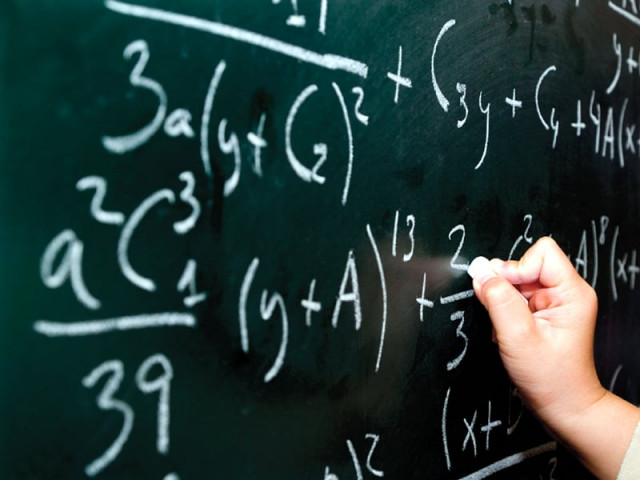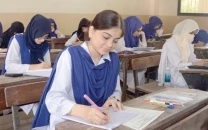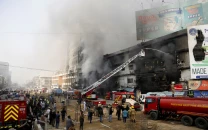Literacy provision on the rise in Punjab
Provincial govt aims to establish education centres for adults, women, prisoners and eunuchs.

Literacy provision on the rise in Punjab
Over 689,000 individuals were provided education through alternative channels across Punjab, said Literacy and Non-Formal Basic Education Department Secretary Dr Pervez Ahmed Khan.
The province boasts a literacy rate of 60%, higher than the national rate of 58%.
During a day-long activity held to celebrate the International Literacy Day, Dr Khan said that out of the 689,000 individuals, more than 200,000 were school-aged children, while the rest were adults who were educated through various adult literacy programs.
As many as 600 centres for children and adults would be established in Multan and Sahiwal to provide education to those who cannot access it or are unwilling to, Khan said. “We shall take literacy programs to their homes and workplaces,” he said, adding that schools will also be established near brick kilns in the Lahore and Faisalabad region.
The secretary further said that through a project of Rs2.3 billion, 6,000 Non-Formal Basic Education (NFBE) schools would be established for children. He added that the department will work with the provincial government to provide education in five central jails across the province for six months. Dr Khan said the department also hoped to provide literacy programs for eunuchs as well, through the establishment of two centres in Rawalpindi and Lahore.“Literacy provides people opportunities and plays a pivotal role in the eradication of poverty,” he said.
Article 25-A
Dr Khan further said his department was working closely with the Free and Compulsory Education Commission to draft legislation regarding the implementation of Article 25-A, which declares “free and compulsory education” a fundamental right for all children aged 5 to 16. Chairman of the Free and Compulsory Education Commission Justice (retd) Khalilur Rehman said the commission hoped to take all stakeholders on board regarding the legislation of Article 25-A. He said the commission had sent letters to opposition leader Raja Riaz and members of other political parties regarding their feedback on the legislative process.
Out-of-school children
Punjab Minister for Education Mujtaba Shujaur Rehman said that according to a survey, 290,000 out-of-school children (OOSC), from a total of 3.8 million, had been brought back to schools. He said one of the key factors of the School Reforms Roadmap was to integrate OOSC and drop-out children into mainstream education. “There are lots of households where education for girls is still considered improper and unreligious; we want to tackle that mindset,” he said.
Rehman said that 29% of the province’s budget has been allocated for education.
Speaking at the occasion, UNESCO Islamabad operations, administration and finance chief, Issa Sekongo, termed literacy a basic human right, and said it is a tool for social development and empowerment.
Published in The Express Tribune, September 9th, 2012.



















COMMENTS
Comments are moderated and generally will be posted if they are on-topic and not abusive.
For more information, please see our Comments FAQ